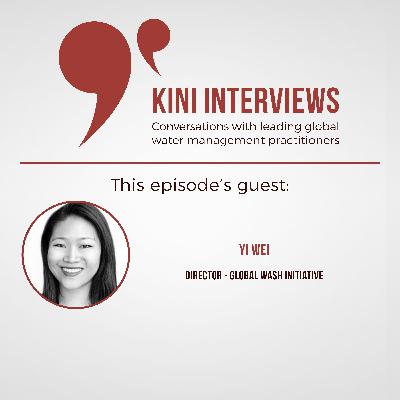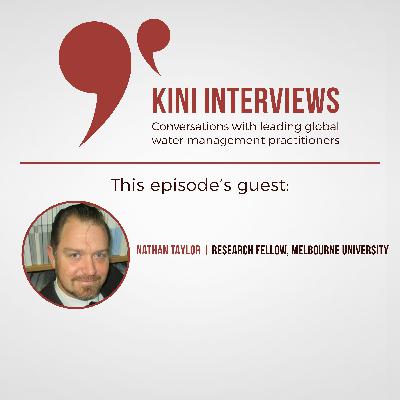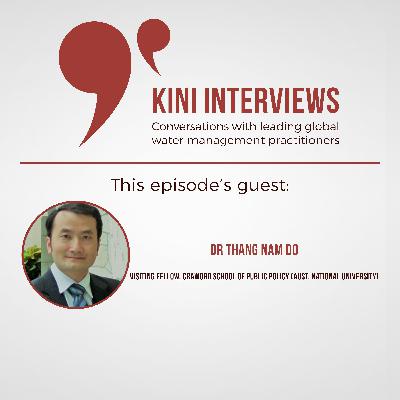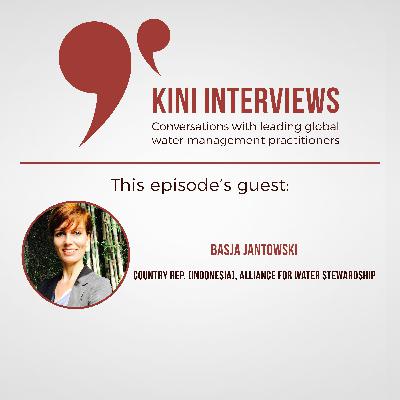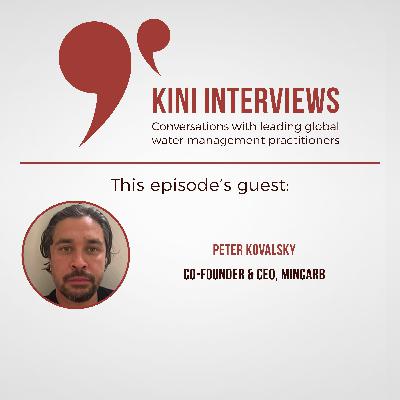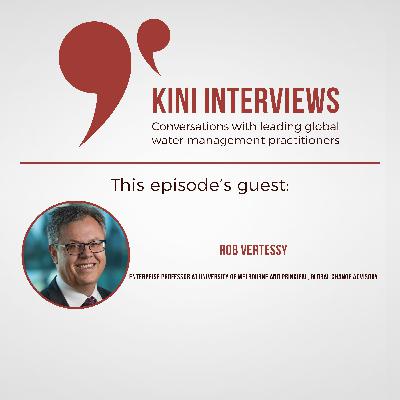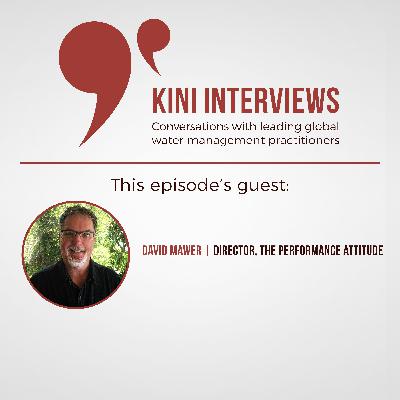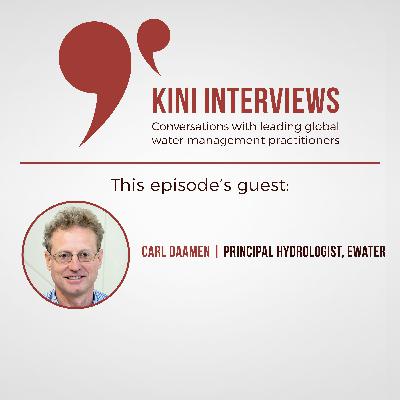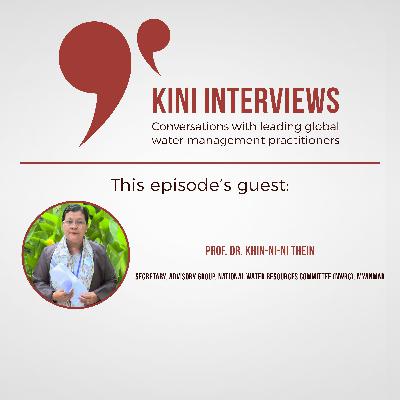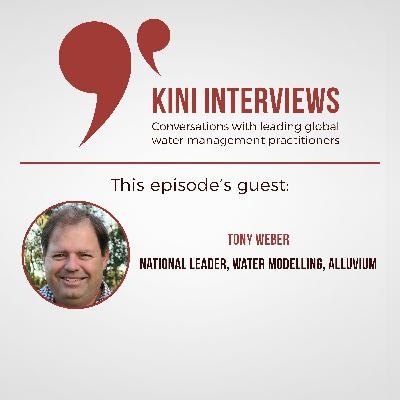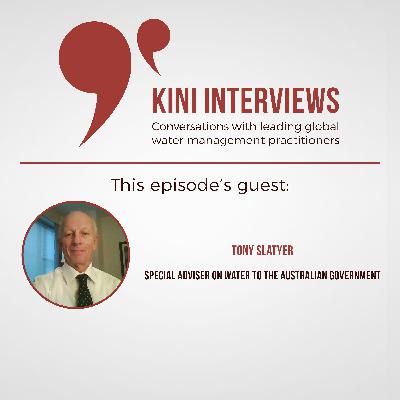Discover AWP Kini Interviews with Leading Water Practioners
AWP Kini Interviews with Leading Water Practioners

39 Episodes
Reverse
Dr Ian Campbell, Director for Rhithroecology speaks about his work and and experience in the Mekong region and his own business Rhithroecology.
Visit http://www.kini.org.au for more interviews with leading water practitioners in the region.
Anik Bhaduri, Sustainable Water Future Program, Executive Director speaks about the Water Future platform and its key features and offerings that facilitate international scientific collaboration.
Visit http://www.kini.org.au more interviews with leading water practitioners.
Nadeem Samnakay, Principal Consultant, Enviro Policy Consulting speaks about addressing water governance issues in the Mekong and the necessity of the trans-disciplinary water professional.
Visit http://www.kini.org.au for more interviews with leading water practitioners.
Marc Goichot, Lead Water & Energy for WWF speaks about the role of the Mekong river in the economy.
Visit www.kini.org.au for more interviews with leading water practitioners.
Yi Wei, Global WASH director for iDE interview speaks about her experience with implementing market based approaches to WASH in Cambodia and other parts of the Indo Pacific region. She also shares how iDE is taking a human centered approach to WASH and what makes that different from other approaches to WASH.
Visit http://www.kini.org.au for more interviews with leading water practitioners.
Vijay Kumar, South Asia Representative for the Australian Water Partnership speaks about the key water challenges in India and shares some lessons and advice for people wanting to work in the region.
Visit http://www.kini.org.au for more interview with leading water practitioners.
Nathan Taylor, research fellow at the University of Melbourne speaks about quantifying the economic value of water in storage, using risk and society’s tolerance to risk and what water costs to mitigate that risk as a basis of finding a value for water in storage.
Visit http://www.kini.org.au for more interviews with leading water practitioners.
Dr Thang Nam Do, Visiting Fellow at the Crawford School of Public Policy at the Australian National University speaks about the current key water challenges in Vietnam and what's being done to resolve them.
Visit http://www.kini.org.au for more interviews with leading water practitioners.
Basja Jantowski, Country Rep, (Indonesia), Alliance for Water Stewardship speaks about:
- Water stewardship in Indonesia
- Challenges encountered and how it was resolved
- Women in water
Visit http://www.kini.org.au for more interviews with leading water practitioners.
Peter Kovalsky, CEO of Mincarb talks about low-energy, eletro chemical desalination technology and it's benefits, as well as some case studies where it has been applied successfully and advice for young water professionals.
For more interviews with leading water practitioners visit http://www.kini.org.au
Dr Shahriar Wahid, Principal Research Scientist, CSIRO shares this insights on climate change impacts on water in South Asia.
For more interviews with leading water practitioners visit http://www.kini.org.au
In an interview with IWCAN’s Karen Delfau, Rona Ramos, Camille Adle, and Perlita Gacutno from Oxfam Philippines share their experiences on sanitation marketing in the Philippines, women’s leadership projects, financial structures, and implementing market based programmes in forced emergency situations.
Visit http://www.kini.org.au for more interivews with leading water practitioners.
Prof. Rob Vertessy, Enterprise Professor at University of Melbourne and Principal, Global Change Advisory speaks about:
- His perpective on leadership not just from a personal level but from an institutional level in terms of affecting change and implementing global policy.
- His past and opportunity working in so many different roles leading to CEO of Bureau of Meteorology.
- The model that Australia has experienced can possibly be transferred to other countries
- Supporting data initiatives in India with the Australian Water Partnership
- His work with the High-Level Panel on Water to support the international data initiatives
- The future of young water professionals
Visit www.kini.org.au for more interviews with leading water practitioners.
Rob Rendell, principal consultant for RMCG speaks about the Water Efficiency Improvement in Drought Affected Provinces (WEIDAP) program in Vietnam and the importance of building relationships.
Visit http://www.kini.org.au for more interviews with leading water practitioners.
Karen Delfau from IWCAN talks to David Mawer from The Performance Attitude about:
• Gippsland Water’s waste problem and the use of integrated water management principles to resolve them.
• The Soil and Organics Recycling Facility (SORF) and its connection to broad-acre farmers
• Closed-loop products and the circular economy.
• How the successes in Gippsland may be replicated in other contexts
Visit www.Kini.org.au to access David's written interview Q&A.
Carl Daamen, eWater’s Principal Hydrogeologis talks about Maharashtra, the work eWater has engaged in the Upper Godavari River.
Prof. András Szöllösi-Nagy is one of the most recognised names in international water management, in that over the past 40 years he has been instrumental in the shaping both institutions and approaches to freshwater management.
Prior to his 2009-2014 appointment in Delft as rector of UNESCO-IHE Institute for Water Education, he was director of the Division of Water, secretary of the International Hydrological Programme, and deputy director general of the natural sciences sector of the United Nations Educational, Scientific and Cultural Organization (UNESCO). While at UNESCO, Szöllösi-Nagy developed the organization’s response capacities in the area of freshwater, including launching the World Water Assessment Program (WWAP) and the Potential Conflict to Cooperation Potential (PCCP) program that deals with conflict prevention and resolution concerning international waters. In 2003, Szöllösi-Nagy was instrumental in establishing the new UNESCO-IHE Institute for Water Education and was a key player in the integration of the institute’s education and research programs in UNESCO.
Dr. Szollosi-Nagy is a founding member of the World Water Council (WWC) where he served six terms as an elected member of the Board of Governors. Currently, he is a professor of Sustainable Water Management at the National University of Public Service in Hungary and serves as Chair of the Intergovernmental Council of IHP.
Visit http://www.kini.org.au for more interviews with leading water practitioners.
Professor Dr. Ni-Ni Thein is a high-level water professional with close to 40 years’ experience in the water sector. She is the founder and president of the Water, Research and Training Centre (WRTC) , which has been conducting public interest water research in Myanmar since 1997.
Currently, she is the secretary to the advisory group, as well as a member of the National Water Resources Committee (NWRC), which is a peak body for Integrated Water Resources Management in Myanmar.
In this interview with Karen Delfau, she talks about:
- The State of the Basin Assessment and the Ayeyarwady Integrated River Basin Management Program
- Participatory Processes and Building Trust with International Partners and the people of Myanmar
- Lessons from the 3rd Asia Pacific Water Summit
Visit www.Kini.org.au for updates and additional resources about this interview.
Tony Weber from Alluvium talks about working on water modeling projects in China, India and Myanmar, river basin planning efforts, and water governance in the developing world and how they can be supported.
Tony is one of Australia’s leading practitioners in the catchment modelling and water quality field. Tony has over 27 years’ experience in the water industry delivering a range of catchment modelling, water sensitive urban design, integrated water management, water quality and stormwater management projects.
Visit www.Kini.org.au for more interviews and updates.
In this 3rd follow-up interview Tony shares the latest updates to the High Level Panel on Water that has taken place
Visit www.kini.org.au for more interviews and updates.






